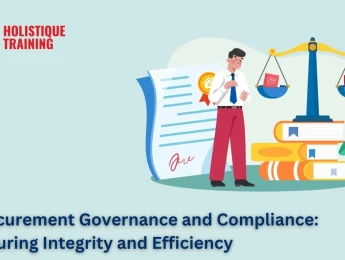Understanding global politics means more than following the news—it means seeing how geography, power, and strategy are connected. Today’s world is shaped by invisible maps—maps of power, interest, and influence. Geopolitics helps us read these maps. It’s the tool we use to understand why countries act the way they do, and how location, resources, and identity shape international decisions.
This course introduces the key ideas, thinkers, and strategies behind geopolitics. You’ll learn how geography shapes global influence, how old theories still matter today, and how land, sea, and even space are now parts of international competition. The course also explains how global powers use strategy to protect their interests and how environmental and identity issues are shaping new challenges.
By the end of this course, participants will be able to:
- Understand how geography affects political decisions and global power.
- Describe key geopolitical terms and real-life examples.
- Discuss how classical geopolitical theories influence current politics.
- Analyze why seas, airspace, and space are vital in today’s power balance.
- Apply modern theories to understand global rivalries and cooperation.
- Use basic tools to study geopolitical trends and regions.
- Explore case studies on climate issues, resource conflicts, and major powers.
This course is perfect for professionals and learners who want to better understand how the world works. It suits:
- Government and policy staff.
- Business decision-makers.
- Journalists and analysts.
- Security or defense workers.
- Students of political science or international affairs.
This training uses simple explanations, visual aids, discussions, and real-world examples. Participants will take part in group exercises, short presentations, and case study reviews. Trainers guide the sessions with clear summaries and questions to help apply the knowledge in practice.
Day 5 of each course is reserved for a Q&A session, which may occur off-site. For 10-day courses, this also applies to day 10
Section 1: Introduction to Geopolitics
- What is geopolitics and why it matters.
- The role of physical and human geography in world politics.
- How global issues are shaped by geographic location and resources.
- Key early thinkers and their influence on statecraft.
- Power, competition, and the global map.
Section 2: Classical Geopolitical Thought
- How ancient strategies helped build empires.
- Overview of famous theories like Heartland (Mackinder), Rimland (Spykman), and Lebensraum (Haushofer).
- How geography supported the rise of superpowers.
- Are classical ideas still useful today?
- Criticism and modern views.
Section 3: Geopolitics of Land, Sea, and Space
- Why oceans, skies, and space are new frontiers of power.
- Sea routes, air defense zones, and satellites as tools of control.
- Conflicts over access and dominance.
- Treaties and legal rules for air and space.
Section 4: Modern Geopolitical Perspectives
- New ideas in understanding global order.
- Gray’s flexible model and Cohen’s regional approach.
- Tools like diatopes and identity politics.
- The rise of digital and environmental concerns in geopolitics.
- The influence of climate and migration.
Section 5: Case Studies and Applications
- What drives major powers like the U.S., China, and Russia.
- The geopolitics of oil, water, and natural resources.
- Climate change as a growing global pressure.
- Crisis hotspots and global responses.
- Lessons from real conflicts and policies.
Upon successful completion of this training course, delegates will be awarded a Holistique Training Certificate of Completion. For those who attend and complete the online training course, a Holistique Training e-Certificate will be provided.
Holistique Training Certificates are accredited by the British Accreditation Council (BAC) and The CPD Certification Service (CPD), and are certified under ISO 9001, ISO 21001, and ISO 29993 standards.
CPD credits for this course are granted by our Certificates and will be reflected on the Holistique Training Certificate of Completion. In accordance with the standards of The CPD Certification Service, one CPD credit is awarded per hour of course attendance. A maximum of 50 CPD credits can be claimed for any single course we currently offer.
- Course Code PM2 - 124
- Course Format Classroom, Online,
- Duration 5 days













